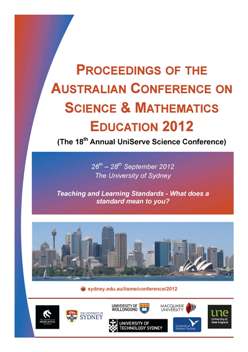Assessing standards in science
Abstract
Internationally there is recognition that critical thinking, analytical reasoning, problem solving and communication) are critical for citizenship in the 21st century and assessment of “quality” and “standards” is increasingly on the agenda (e.g. AHELO, QAA, Tuning project). In 2011, the Australian government legislated for a Quality and Standards framework (by formation of TEQSA – the Tertiary Education Quality & Standards Agency) which will regulate tertiary education against an agreed set of standards developed by the Higher Education Standards panel. Prior to this in 2010, the Organisation of Economic Co‐Operation and Development (OECD) launched a new initiative, the Assessment of Higher Education Learning Outcomes (AHELO), to measure learning outcomes of graduates across OECD’s thirty‐one member countries. Also at the same time the Australian Government through the Australian Learning and Teaching Council funded a project to define the threshold learning outcomes in science as part of the development of the Learning and Teaching Academic Standards project. The threshold learning outcomes for science describe a series of minimum standards expected of a science graduate. Although ACER (Australian Council for Educational Research) has been engaged by the OECD to develop approaches to assess both generic and discipline-specific learning outcomes in Economics and Engineering for the AHELO project (http://www.acer.edu.au/research/he/assessment-of-higher-education-learning-outcomes-ahelo/) and similarly in the US the Collegiate Learning Assessment (CLA, http://www.collegiatelearningassessment.org/index.html) will be used to assess the critical thinking skills of graduates and benchmark across institutions across disciplines.Downloads
Published
2012-08-29
Issue
Section
Ideas Exchange
